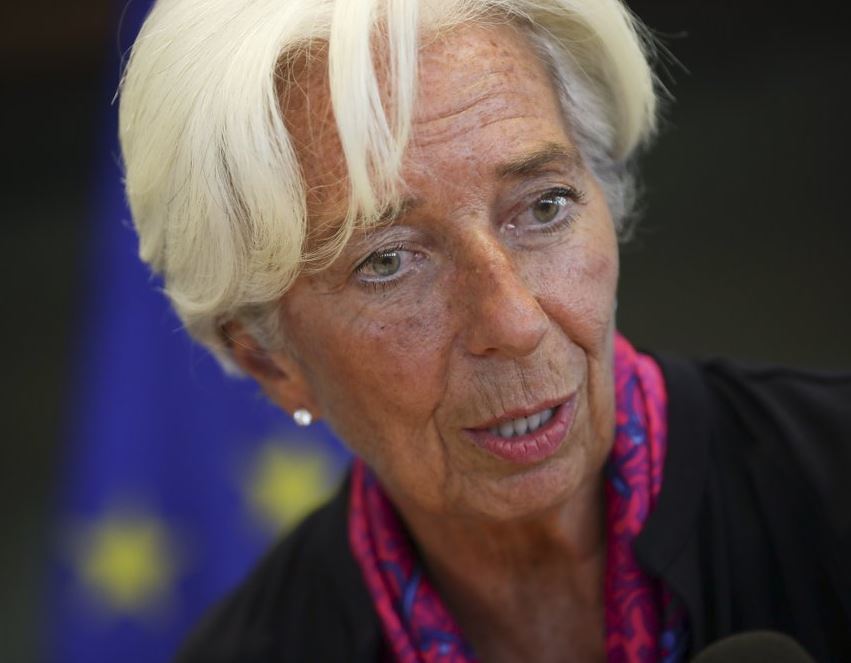
Incoming President of the European Central Bank Christine Lagarde speaks to the European Parliament's Economic and Monetary Affairs Committee in Brussels, Wednesday, Sept. 4, 2019. (Photo: AP)
Incoming European Central Bank head Christine Lagarde is defending the bank’s record low rates and other stimulus measures as she prepares to take over with the economy facing trouble from trade wars and Brexit.
During hearings in the European parliament Wednesday, Lagarde said the job requires both a commitment to the basic mandate to keep prices stable and the “agility” to come up with new ways to meet unforeseen trouble.
Lagarde, who has been nominated by European governments to succeed Mario Draghi on Nov. 1, is preparing for the new job at a time of heightened uncertainty about the economy, both in Europe and around the world.
She would take over just as Britain is scheduled to leave the European Union. If that happens without a divorce agreement to smooth trade, it could disrupt business dealings between the UK and the 27 remaining members. Europe’s trade-focused industries are facing further turmoil from the US-China trade conflict. US President Donald Trump has imposed tariffs on Chinese goods as he seeks to overhaul trade relations with Beijing; uncertainty over tariffs has sideswiped the 19-country eurozone as businesses delay investments and new orders.
At her hearing in Brussels, Lagarde expressed support for the European Central Bank’s extraordinary measures - such as bond purchases and negative interest rates, which have drawn criticism, especially in Germany, for reducing savers’ returns, among other things.
The 63-year-old lawyer argued that the measures had helped create 11 million new jobs since 2013 and eased financial turmoil.
Without such measures “the crisis would have been a lot worse,” she said.
Lagarde said she agrees with the bank’s view that the economy would need monetary support “for an extended period of time.”
Lagarde resigned from the IMF effective Sept. 12 after European leaders nominated her for an eight-year, non-renewable term at the ECB beginning Nov. 1.
Based in Frankfurt, Germany, the ECB sets interest rate benchmarks and supervises banks for the 19 EU member countries that use the euro as a currency. Its policies have wide-ranging impact on inflation, employment, business borrowing costs and the prices of assets such as stocks, bonds, currencies and real estate. The ECB’s ability to act swiftly set it apart from European Union leaders as the eurozone economy’s first line of defense during the debt crisis.
Lagarde said she would aim to communicate clearly with the public to explain the bank’s decisions. She said that while “financial market operators” were likely to understand the ECB’s message on monetary issues “I want the people of the euro area to understand why decisions are being made.”
Lagarde is not an economist, although she is versed in finance after serving as French finance minister and head of the IMF. She said that at the IMF she had asked staff to improve communication by not using confusing acronyms.
She praised the “agility” that led the bank under Draghi to come up with new tools to confront the crisis over heavily indebted governments and then a period of low inflation that threatened to lead to chronic economic stagnation. Those unusual tools have included a negative interest rate for deposits from banks - to push them to lend the money instead of leaving it at the ECB - and a promise to purchase the bonds of countries facing excessive borrowing costs.
Some of those tools have faced criticism, in particular from German news media and politicians. Some critics say they have led to low returns for savers and that stimulus has reduced the incentive to reform financially shaky governments. Draghi’s announcement of the bond-purchase promise in 2012 is credited with defusing the debt crisis, so much so that the backstop was never actually used.
The hearing preceded a vote by the full parliament on the nomination, though the parliament cannot block the nomination. In 2012 they voted against the appointment of Yves Mersch to the ECB’s top executive board to underline their displeasure at the lack of female candidates for top ECB posts. The eurozone leaders made the appointment anyway.
Analysts say the ECB could add new stimulus measures at its Sept. 12 meeting. Lagarde said she could not comment on the upcoming meeting since she’s not in office yet.


